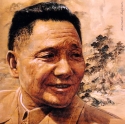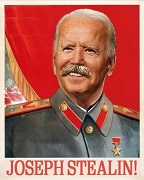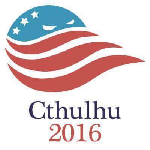|
RagnarokAngel posted:I can't wait till we get past the civil war I feel too many decisions are based on how the person feels about slaves because...yeah. Yeah, I can't wait to switch from the "Abolish Slavery!" platform to the "Full Communism Now!" one, either.
|
|
|
|

|
| # ? May 10, 2024 16:43 |
|
All my decisions are based on strengthening the bourgeois state and industrial capitalism as a necessary stage before implementing socialism. You can't seize the means of production if you don't have that first.
|
|
|
|
I just can't wait until we get to the point where I can start deciding my vote based solely on political cartoons
|
|
|
|
RagnarokAngel posted:I can't wait till we get past the civil war I feel too many decisions are based on how the person feels about slaves because...yeah. Well speaking of slavery were there any serious movements after the war to "bring it back" or something? Ibogaine posted:Yeah, I can't wait to switch from the "Abolish Slavery!" platform to the "Full Communism Now!" one, either.
|
|
|
|
TEAYCHES posted:All my decisions are based on strengthening the bourgeois state and industrial capitalism as a necessary stage before implementing socialism. You can't seize the means of production if you don't have that first. god drat menshaviks Takanago posted:I just can't wait until we get to the point where I can start deciding my vote based solely on political cartoons An image of the future... 
|
|
|
|
TEAYCHES posted:All my decisions are based on strengthening the bourgeois state and industrial capitalism as a necessary stage before implementing socialism. You can't seize the means of production if you don't have that first. Same. It'd be good if we could skip that, but that's not possible through this government. We'd have better chance of kick starting the Civil War earlier and wresting the union away from the Bourgeoisie and Planter Aristocrats at the same time during the chaos. e: Taft had the right idea. More pie for everyone!
|
|
|
|
QuoProQuid posted:god drat menshaviks Taft forever
|
|
|
|
SpRahl posted:Well speaking of slavery were there any serious movements after the war to "bring it back" or something? immediately after the war southerners used vagrancy laws and unilateral contracts to tie black workers to the land, but reconstruction gave the freed slaves the vote, which resulted in the real but meager gain of escaping gang labor and allowing individual black families to operate as economic units, with parents deciding how much their kids would labor, even if they were still living on the same master's land and stuck in debt slavery paying him more for food than he paid them for their cotton. that's sharecropping, and it worked - by 1870 america was already growing more cotton than it had in 1860 - partly because poor white southerners who had been subsistence farmers before the war became cotton growers just like the black sharecroppers on the former plantations. it took some investments in bureaucracy, transportation infrastructure, and bringing things like those vagrancy laws in to use the state as an overseer - it's not a victory of free labor, it's a victory of modern forms of coercion over the forms used in slavery, as we can see by the descent of poor whites into pretty close to the same situation the former slaves were in. soon, southern white terrorism overcome the northern appetite for military occupation and black political rights were extinguished in the south for almost a century, freezing the sharecroppers in place basically until the great migrations of the early 20th century that's the impression i get from this book empire of cotton. here's some more context of what i can understand from memory, having read the chapter about this last night: the blacks had wanted to become subsistence farmers, which made most of their former northern supporters cast them off as 'lazy' (not all, thaddeus stevens and a few other radical republicans were willing to accept lower cotton profits), but the same processes that drew poor whites into the cotton trade made it impossible for blacks to stay out. from what i can understand, new railroads and the expanding market economy allowed poor farmers to sell lots of cotton with low transportation costs, but also led to them going into debt buying both consumer goods and the food they weren't growing for themselves any more. meanwhile, the price of cotton dropped with increasing supply but southern farmers couldn't grow anything else their creditors would accept as collateral because cotton was still reliably saleable, so the farmers kept falling behind, their debt increased, and as time went on more and more farmers dropped from owning or leasing land to being pure agricultural wage laborers at the same time the former plantation owners and now major landlords remained locally rich but lost pace with elites from other regions. cotton manufacturers paid less money for more cotton and held more and more debt from the farmers they were buying from. it made the south poorer but kept the world cotton industry running on southern cotton, which no-one had expected when emancipation first hit the same thing happened to farmers in india, egypt, and the ottoman empire. in egypt the landlords' mortgaged their farms to british creditors on a massive scale, which led to the british occupying the country for about forty years to guarantee their investments. probably not totally accurate, but it's what i can remember
|
|
|
|
Sounds like a good book to pair with "Slavery by Another Name." But yes, slavery just changed into a more palatable form, it never died 
|
|
|
|
Thank you all for voting. In a stunning landslide, DeWitt Clinton has become His Elective Majesty, the President of the United States. Already, Clinton is meeting with allies from across the country, such as Secretary of War Calhoun and Speaker of the House Clay, to make sure that his vision of an economically self-sufficient America becomes reality. Clinton has also gently thanked the country for delivering him the extremely capable Daniel D. Tompkins to the Vice Presidency. Hopefully, Tompkins will visit Washington, D.C. at least once to attend the Inauguration. RESULTS BREAKDOWN Most Popular Ticket: DeWitt Clinton / N/A (Independent) - 54 votes (80.6%) James Monroe / Daniel D. Tompkins (Democratic-Republican) - 8 votes (11.9%) James Monroe / Daniel Rodney (Democratic-Republican/ Federalist) - 3 votes (4.5%) James Monroe / Richard Stockton (Democratic-Republican/ Federalist) - 2 votes (3%) Most Popular Parties: None - 54 votes Democratic-Republican Party - 13 votes Federalist Party - 5 votes
|
|
|
|
ELECTION OF 1824 Click here to vote in the Election of 1824! Click here to vote in the Election of 1824!   Background: By 1820, James Monroe had largely succeeded in his effort to fuse the Federalist and Democratic-Republican Parties into a single camp. Hopeful that the United States might move beyond partisan politics and embrace the political independence advocated by George Washington, Monroe and his allies declared a new “Era of Good Feelings” where future Presidents would be selected by national consensus with a public mandate to support them. Monroe’s dream died in 1823 when he realized that there would be no one to continue this legacy. Monroe’s Vice President, Daniel Tompkins, died less than three months into his presidency as a universally unpopular man. The Democratic Congressional caucus’s nominee, William Crawford, suffered a massive stroke weeks after his selection, engendering accusations of corruption. John Quincy Adams seemed like a likely consensus candidate, until prominent Congressional politicians accused him of being a Federalist pseudo-monarchist in Democratic-Republican clothing. Though he is popular with the base, most prominent party leaders have dismissed the uneducated Andrew Jackson as a serious contender. Thus, James Monroe has been forced to watch his party descend into sectional chaos. Each region of the United States has supported a different candidate and has refused to withdraw their nominee, despite fears of causing a run-off election in the House. There are only two major policy issue in this election. First, the country is divided over the American System, a Hamiltonian economic plan advocated by Henry Clay and John Calhoun that seeks to establish American economic-self sufficiency. Running counter to the Federalist notion of a single unifying national economy, the American System hopes to build specialization among the different states through tariffs and internal improvements. It also envisions a Bank of the United States whose role is to stabilize currency and rein in risky investments by state banks. Though the West and South oppose the tariff policies, many hope that the promise of internal improvements will be enticing enough to get their support. Second, the country is increasingly concerned with corruption. With political clubs like Tammany Hall gaining increasing sway and the influence of monied interests becoming increasingly transparent, many in the public are afraid that the American Revolution has become subverted. Many see the system as intentionally rigged in favor of political, social, and economic elites. For the least wealthy and most oppressed classes, many see their only chance in a political outsider like Andrew Jackson. As the hero of the Battle of New Orleans, the defender against Indian incursions, and an advocate for Westward expansion, Jackson is viewed in much of the South and East as a new George Washington who can return American government to the people. The Candidates: NORTHEASTERN DEMOCRATIC-REPUBLICAN PARTY CANDIDATES:  Presidential Nominee: John Quincy Adams
SOUTHERN DEMOCRATIC-REPUBLICAN PARTY CANDIDATES:  Presidential Nominee: Andrew Jackson
 Vice Presidential Nominee: John Caldwell Calhoun
WESTERN DEMOCRATIC-REPUBLICAN PARTY CANDIDATES:  Presidential Nominee:William Harris Crawford
 Vice Presidential Nominee: Nathaniel Macon
EASTERN DEMOCRATIC-REPUBLICAN PARTY CANDIDATES:  Presidential Nominee: Henry Clay
 Vice Presidential Nominee: Nathan Sanford
QuoProQuid has issued a correction as of 19:00 on Jan 17, 2016 |
|
|
|
welcome aboard president for life John Quincy Adams, may death come quickly to his enemies
|
|
|
|
Raskolnikov38 posted:welcome aboard president for life John Quincy Adams, may death come quickly to his enemies The coastal elites are already threatening us Real Americans with murder. Come on, y'all, let's put some frontier motherfuckers in the White House!
|
|
|
|
Voting the the Donald Trump of the early 1800s
|
|
|
|
Aliquid posted:The coastal elites are already threatening us Real Americans with murder. Come on, y'all, let's put some frontier motherfuckers in the White House!  JOHN ADAMS: "Hurra for our son "Jack." GOOD WESTERN PATRIOTS: "Hurra for our Jacks-'son.'" DIRTY IRISHMAN: "Blast my eyes if I dont "venter" a "small" horn of rotgut on that "bald filly" in the middle [Adams]." John Dough posted:Voting the the Donald Trump of the early 1800s  THE PRESS'S TREATMENT OF ANDREW JACKSON QuoProQuid has issued a correction as of 19:22 on Jan 17, 2016 |
|
|
|
I am looking to campaign and vote for whover has the strongest "murder Andrew Jackson, and burn his hometown to the ground" policy. Anyone willing to lobby me on that issue?
|
|
|
|
love how the slavery supporters are getting nastier and nastier. also love how the guy who likes it least has the guy who likes it most running with him as candidate for vp. at least adams and calhoun are talking about maybe not driving the civilized tribes into the west, that's kind of nice of them anyway, i'll go for adams and calhoun because we all love former federalists from new england and maybe we can get adams to take his father's old presidential titles... inherit them if you will
|
|
|
|

i say swears online has issued a correction as of 19:48 on Jan 17, 2016 |
|
|
|
I've been dreading this vote because I really, deeply love JQA and loving loathe Calhoun with every bone of my body.
|
|
|
|
All hail the second coming of our lord and savior, the forever God-King Emperor John Quincy Adams, may he lay waste to all those who would see his reign challenged. May Andrew Jackson roast in hell.
|
|
|
|
Jackson is a loser, in real life and in this thread.
|
|
|
|
Adams/Calhoun '24.
|
|
|
|
|
Raskolnikov38 posted:welcome aboard president for life John Quincy Adams, may death come quickly to his enemies This sums up the way I am feeling better than I could put it. Just like the LOrd gave us Jesus Christ, John Adams gave us John Quincy Adams. Anybody who is turning his back on him is turning his back on redemption itself. Edit: Once JQA is elected, the constitution should be amended to make him president for life so that we can go without the divisive and ultimately distructive process of elections for the time being.
|
|
|
|
Ibogaine posted:Edit: Once JQA is elected, the constitution should be amended to make him president for life so that we can go without the divisive and ultimately distructive process of elections for the time being. until we can figure out what's going on
|
|
|
|
drat, JQA is my first instinct but I'm not sure "buy their land instead of taking over" is "don't gently caress over Native Americans" enough for me. Yet at the same time Henry Clay is pro-slavery.
|
|
|
|
reignonyourparade posted:drat, JQA is my first instinct but I'm not sure "buy their land instead of taking over" is "don't gently caress over Native Americans" enough for me. Yet at the same time Henry Clay is pro-slavery. I mean, yeah, but still better imo than Andrew "Genocide rulz" Jackson. E: i talk big on the Internet because if we had ever met, homeboy probably would have shot me.
|
|
|
|
I wish I could just cast an anti-vote for Andrew Jackson. That's all I really want out of this election.
|
|
|
|
QuoProQuid posted:Clinton has also gently thanked the country for delivering him the extremely capable Daniel D. Tompkins to the Vice Presidency. Hopefully, Tompkins will visit Washington, D.C. at least once to attend the Inauguration. Tompkins for eternal VP. edit: quote:Monroe’s Vice President, Daniel Tompkins, died less than three months into his presidency as a universally unpopular man.
|
|
|
|
Also wasn't Calhoun Adams' VP pick as well? He ended up being vice president, and on Wikipedia (I know) it says directly that Adams supporters put him on the ticket.
|
|
|
|
I'm trying to not use historical knowledge to decide against Andrew Jackson because that seems against the spirit of the thread. That said, JQA for life.
|
|
|
|
Octatonic posted:I mean, yeah, but still better imo than Andrew "Genocide rulz" Jackson. Pretty much the only reason to vote Jackson is fear that the fucker would rise from the grave and personally shoot you, because thats something he would do.
|
|
|
|
RagnarokAngel posted:I'm trying to not use historical knowledge to decide against Andrew Jackson because that seems against the spirit of the thread. I'm pretty sure Andrew Jackson was already a literal war criminal at this point, no need to worry about future-knowledge.
|
|
|
|
I would like to modify of my initial suggestion of making JQA President for life a little. In fact, he should become President For All Eternity, and once he died, we'll just mummify his corpse and turn the White House into his mausoleum. The people of the United States will still be allowed to vote for VPs, naturally, and we will rely on The Eternal President to rise again in this nation's greatest hour of need.
|
|
|
|
I'm about that Quincy life
|
|
|
|
Henry Clay: right on the Ottoman Muslim Caliphate threat, right for America
|
|
|
|
I wish you could vote for JQA + Nathan Sanford. As an Australian my knowledge of american history begins in 1861, I had no idea of how much a terrible person Andrew Jackson is.
Cthulhu Dreams has issued a correction as of 00:52 on Jan 18, 2016 |
|
|
|
Cthulhu Dreams posted:I wish you could vote for JQA + Nathan Sanford. As an Australian my knowledge of american history begins in 1861, I had now idea of how much a terrible person Andrew Jackson is. Good thing we put him on our money for some reason.
|
|
|
|
troubled teen posted:Good thing we put him on our money for some reason. If it helps that fact would probably piss him off to no end.
|
|
|
|
troubled teen posted:Good thing we put him on our money for some reason. putting jackson on the twenty is the greatest historical troll of all time and i salute whoever came up with it all those decades ago
|
|
|
|

|
| # ? May 10, 2024 16:43 |
|
Raskolnikov38 posted:putting jackson on the twenty is the greatest historical troll of all time and i salute whoever came up with it all those decades ago He was also on (at various times) the $5, the $10, the $50, the $10,000 and the Confederate $1,000. Because lol.
|
|
|

































